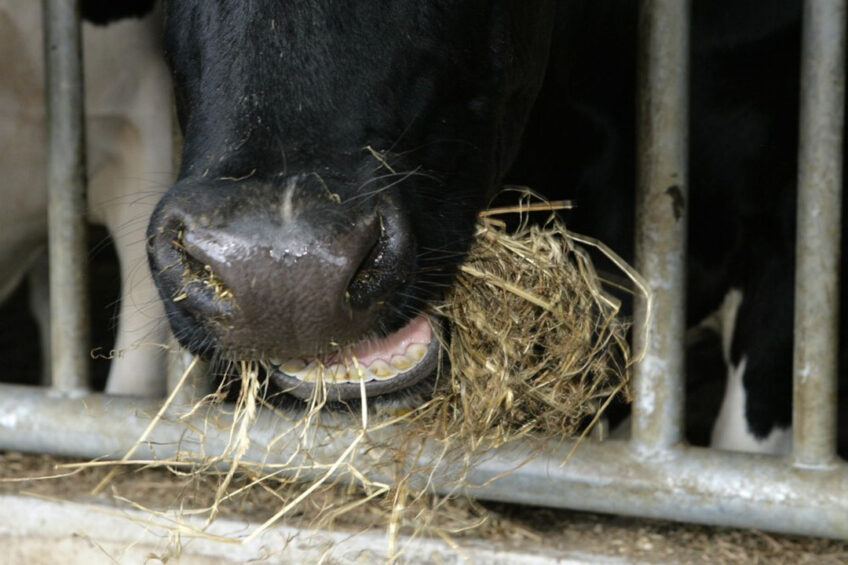Fungal enzymes can boost milk output and quality

Researchers have found that adding fungal enzymes to dairy cow rations not only enhances milk output but also boosts quality.
Adding 2 fungi simultaneously has a positive effect on the animals’ lactational performance, according to the study at Pennsylvania State University in the US.
While exogenous enzymes have been widely used in human and animal nutrition for many years, laboratory research has shown that enzymes from Aspergillus oryzae and Aspergillus niger together might have a synergistic effect on the cow’s rumen, promoting the activity of the microbial populations enhancing digestion of fibrous components in the diet.
A 10-week study led by Leoni Martins, doctoral degree candidate in animal science, involved a herd of 48 Holstein cows at the Penn State Dairy Teaching and Research Centre. Some were fed rations supplemented with an enzyme preparation extracted from a mixed culture of Aspergillus. The team then evaluated the cows’ lactational performance, metabolism and digestion.
Study results
The researchers collected milk samples every other week and analysed milk composition. They also collected blood, faecal and urine samples regularly to monitor cow physiological responses to ingesting the enzymes.
They reported that compared with the control group, cows fed the enzymes tended to eat more, and their milk had higher concentrations of protein, lactose and other desirable solids. Overall, enzyme consumption seemed to have a notably positive effect on both milk quantity and quality.
Martins said laboratory studies had suggested ruminal fermentation and feed digestion could be enhanced by dual enzyme supplementation: “We demonstrated with the cows that enzyme supplementation increased milk production and also resulted in increased solid concentrations in milk.
“We are trying to help the rumen microbes do what they do. The microbes produce these enzymes that break down fibre, but we are trying to supplement additional enzymes to enhance fermentation in the rumen. There is a very important symbiotic process going on between the microbes and the cow,” added co-author, Alex Hristov.
Nutrients, energy and amino acids
Hristov added that the cow provides the environment and nutrients for the microbes to live and thrive and then the microbes provide energy and amino acids for the cow. So, enhancing rumen fermentation with supplements is a way of improving production by the animal.
“The cow is like us – we cannot digest fibre. Without rumen microbes, they couldn’t either. We eat cereals and vegetables and so on, but we can barely digest any fibre. And if we digest any fibre, it’s because of the microbes in our guts. Cows and other ruminants digest fibre that very few animals can digest and convert it into high-quality protein for human consumption.”
L.F . Martins et al. ‘Effects of an exogenous enzyme preparation extracted from a mixed culture of Aspergillus spp. on lactational performance, metabolism and digestibility in primiparous and multiparous cows,’ is published in the Journal of Dairy Science.







